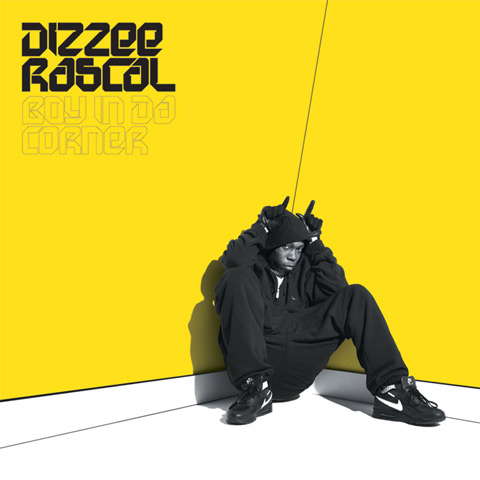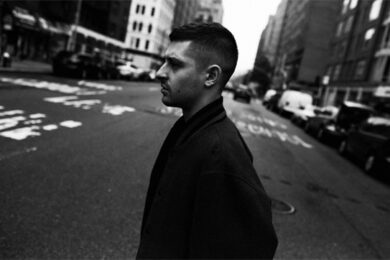2.

Dizzee Rascal – Boy In Da Corner
Where to start? I think it’s the most important UK album of the last decade, easily. He was such a visceral voice, but also if you listen to the production there’s so much weird, wrong soul in it, in the same way there was in Detroit stuff. ‘Cause it’s actually quite a melodic record in some ways, even though it’s very outsidery and wrong.
I could talk about that album all fucking day. There’s so much to say, because it’s such a political statement about where the youth was at the time, and it’s so accurate to a lot of people’s attitudes. He really did capture that, an aspect of British society that up until then was totally undocumented, or almost entirely. Even with UK rap, I felt like it was always trying to let people access it in a slightly different way, approaching people in some way, finding an angle. But Dizzee didn’t do that at all, he just came as he was, and the whole project you could just tell was from his mind and life experiences. But the production again is what it comes back to for me, because there’s just something about the way he did it. It’s so cold, but so effective, and so stark.
He [also] had a few beats at the time from the same sessions, that were just straight 8-bar tracks, and they remain some of my favourite grime instrumentals. Dizzee’s such an underrated producer – so good! – and it’s such a shame that he’s not doing that now, or didn’t continue to do that for a little longer. ‘Cause almost as soon as he tasted success he started to get other people to produce for him or started to do something different. But I wouldn’t ever want to level any criticism at the way he went with his career, because that was obviously exactly the point. The last track on Boy In Da Corner is about how he’s at a crossroads, and what does he do now? It’s almost like he’s made his mind up already that he’s going to leave the hood. So he did exactly what he said he would do, and what everyone set out to do, and so props to him. No grudge at all. But I would say that I would have wanted a few more of those kind of productions!
It was pretty important [in introducing me to grime] to be honest. A friend of mine at the time was obsessed with the whole radio culture that surrounded it, and kept trying to tell me listen to it and divert me from what I was listening to at the time. I was kind of buried in really experimental music, and I’m glad he brought me out of that path. I used to listen to Black Dice all the time, and I remember thinking it’d be so cool if Black Dice was a sound kit for a grime producer, and how would that sound. So I started hearing the same elements [in grime] as I was hearing in all the quite experimental stuff I was into, but just arranged in a way that was so direct, that I wasn’t really prepared for.
But you know, I remember thinking ‘what is this?’, coming at it from an angle of just not getting it. It wasn’t until I actually started listening to pirates that Rascal’s album fully clicked with me. And then I realised the genius of it – what he’d actually done, and how he transcended his pirate context, and how he managed to make different tempos and tell stories with these kinds of sounds, and how it was different. But to hear the difference, and to hear the genius in it, I had to embrace his scene a little bit. And then obviously from that point on, I was just completely addicted. Totally hooked. [laughs]


